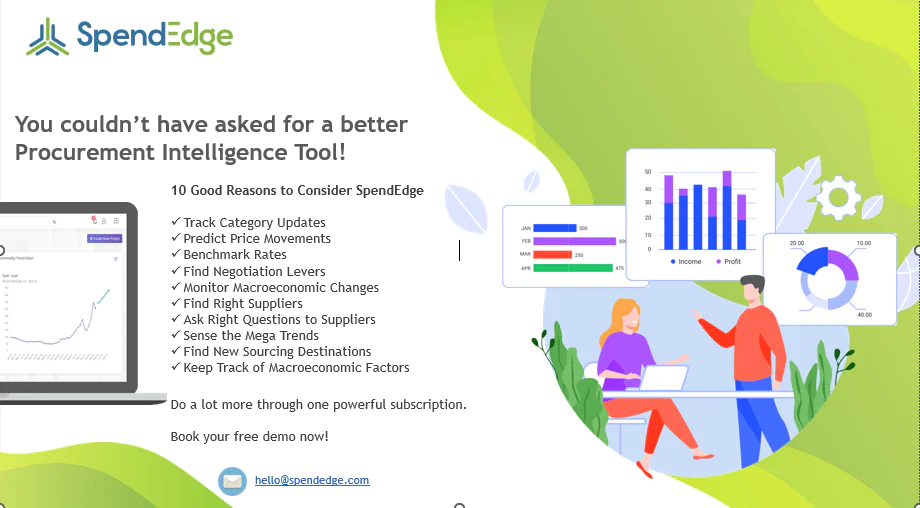Importance of Category Management Process
In the electronics industry, the category management process is essential for optimizing procurement and supply chain operations. It plays a crucial role in driving cost savings by identifying opportunities for bulk purchasing and negotiating favorable supplier terms, which can significantly reduce expenses. Additionally, effective category management strengthens supplier relationships, fostering collaboration and reliability are vital for maintaining a consistent supply of components and materials.
By providing valuable insights into market trends and emerging technologies, it enables companies to stay competitive and make informed decisions. The process also enhances risk management by identifying potential disruptions and market fluctuations, thus ensuring stability in production. Category management aligns procurement activities with strategic business objectives, supporting the company’s broader goals and enhancing overall organizational performance.
Advantages of the Category Management Process
A well-executed category management process is fundamental to establishing a robust category management system. It enables organizations to develop effective strategies that enhance business value. For organizations seeking an objective method to drive category growth and improve procurement efficiency, category management is ideal. It identifies alternative and feasible ways to enhance category performance.
The global electronics industry is experiencing substantial growth, which, in turn, amplifies the supply market challenges faced by industry players. The increasing complexity of these challenges underscores the necessity of developing a sophisticated category management process. Such a process is instrumental in improving brand value and overcoming the inertia that can occur when businesses become entrenched in specific industry practices.
Summary of the Category Management Process
-
How is the market performing?
-
What are the latest trends and development?
-
What are the procurement best practices?
-
How is the market likely to shape up in the long and short term?
-
What are the key risks?
Electronics Category Management Challenges
Navigating category management in the electronics industry presents multifaceted challenges. Continual technological advancements lead to rapidly evolving consumer preferences and product innovations. Synchronizing the right mix of devices, components, and accessories, while forecasting demand accurately, becomes intricate. Supplier partnerships are pivotal for sourcing reliable components and staying updated on emerging technologies. Striking a balance between offering cutting-edge products and maintaining cost efficiency requires astute planning.
Managing product categories across gadgets, components, and peripherals demands insightful market analysis, close collaboration with suppliers, and an ability to anticipate shifts in consumer electronics trends. Effective category management here involves harmonizing innovation, affordability, and market demand to drive customer engagement and brand loyalty.
Success Story
Engagement overview
The client, a global leader in the electronics industry that manufactures consumer electronics products, sought to enhance their procurement operations by establishing a systematic and strategic approach to the acquisition of goods and services. To achieve this, they aimed to implement advanced techniques and tools to develop a robust category management process. Recognizing the need for specialized expertise, the electronics company engaged SpendEdge to devise and implement a comprehensive category management strategy that would optimize procurement efficiency, drive cost savings, and support overall business objectives.
Business challenge
The electronics manufacturing industry is experiencing significant growth due to rising demand for consumer electronic products. As a result, leading companies in this sector are increasingly emphasizing category management strategies to optimize spending and enhance returns. Confronted with challenges in improving the efficiency of their procurement plan and strategy, the client sought to develop a streamlined and effective category management process to overcome these challenges.
How did SpendEdge Assist the Client with Category Management?
The client partnered with SpendEdge to refine their category management process and improve procurement efficiency. Our team developed a robust, tailored approach aligned with evolving market trends and long-term procurement needs.
SpendEdge follows a three-step approach for effective category management processes, enhancing procurement efficiency.
Step 1: Initiation
In the initiation phase, we crafted a comprehensive category management plan that would serve as the foundation for the entire process. This initial groundwork is crucial, setting the stage for the development of an effective category management strategy
Step 2: Strategy creation
The second phase involves formulating a detailed category strategy. After evaluating the categories, the procurement team designs strategies to optimize the role of each category within the organization. This process involves an external analysis of the electronics industry to pinpoint key market factors that impact strategy development.
Step 3: Strategy implementation
The final step involves executing the strategy, which includes evaluating the strategy plan, determining return on investment (ROI), and assessing its impact on supply chain efficiency. Successful implementation necessitates dedicated resources to ensure effective execution and integration into the client’s operations.
By following this structured approach, SpendEdge helped the client enhance their procurement efficiency and adapt to market dynamics effectively.
Benefits of the Engagement
The implementation of a three-step category management process enabled the client to accurately measure the performance of each category against their category management plan. Additionally, with the support of SpendEdge’s category management solutions, the client gained a comprehensive understanding of the electronics industry landscape.





